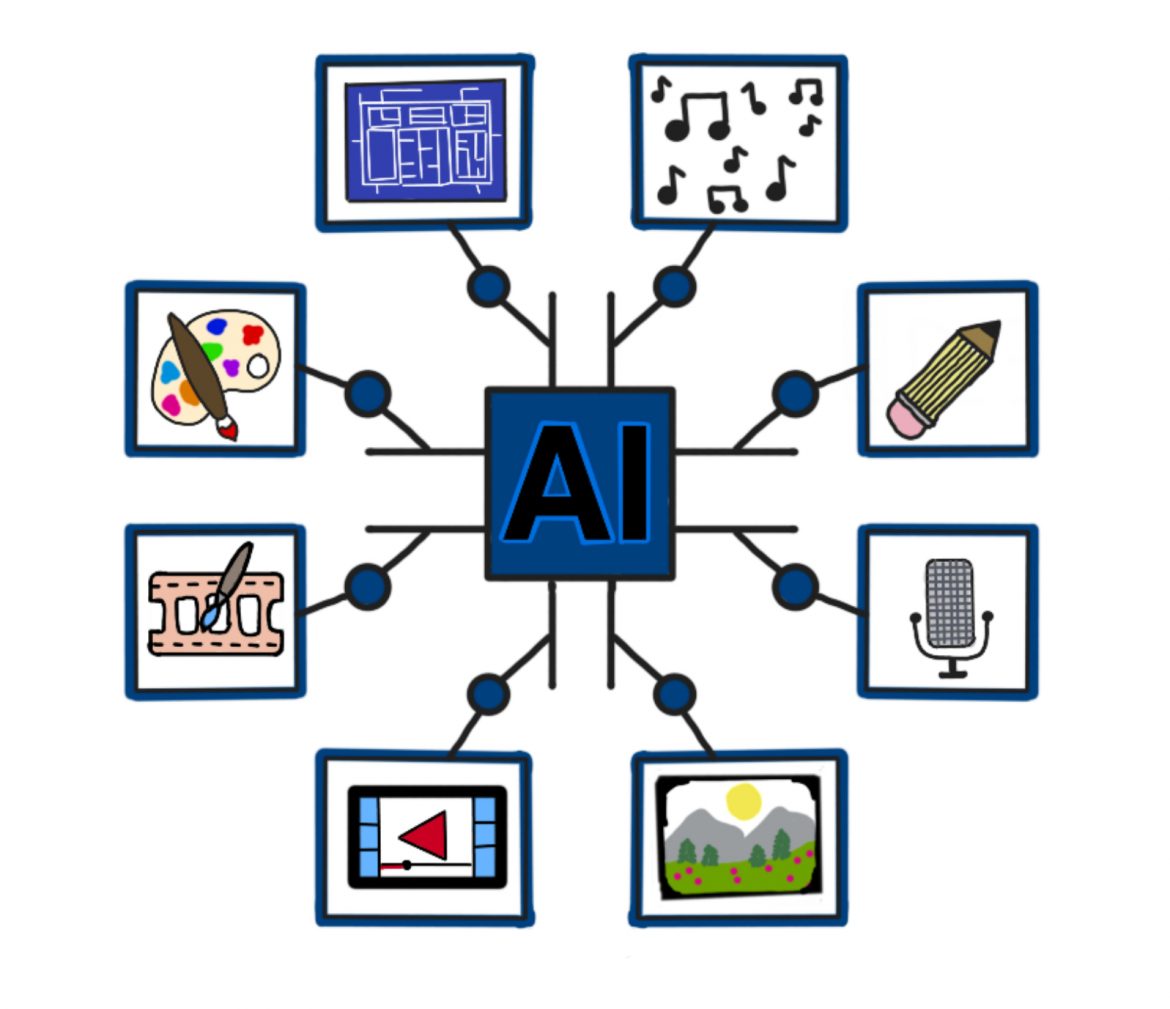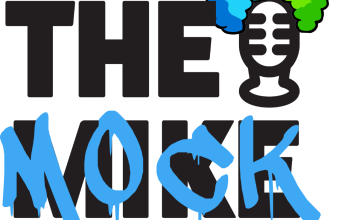Illustration Credit: Nisa Notta
A new chapter in the age of digital reproduction
Lyana Shaharizan, Senior Staff Writer
As you scroll through TikTok, there is an 80 percent chance that you will encounter a video using AI-generated sound. With or without official consent from the original artists, people have been abusing this new technology to create their own content. One of the most realistic and well-done replicas is the “Drake AI — Heart on the Sleeve ft. The Weeknd AI.” song mixed by Ghostwriter. The first time I listened to it, I did not realize that it was, in fact, not sung by Drake. The resemblance was so uncanny that it chilled my spine after I learned that it was created by AI technology.
However, I wish to spotlight the real issue at hand. Is AI really taking over the arts industry? We have already seen AI-generated images being used by big companies. Even Nicki Minaj, the queen of rap, uses AI-generated images for her upcoming album. I apologize in advance to the Barbz out there, but the images lack taste! Visual artists, such as digital artists and comic artists, have been anything but quiet regarding this new technology. Jon Lam, storyboard artist for Riot Games, posted on his social media about the absence of governance in the use of AI technology. People are using Midjourney AI, Stability AI, and other apps to create art by feeding prompts and including certain artists’ artwork as references for the AI to create a new piece.
After lawsuits, artists still face this problem on a daily basis. Their artwork, which they put their hearts and souls into, is freely being used by AI artists without them getting a single cent, while money flows into the AI technology developer’s pocket from the AI user’s subscriptions. DeviantArt, once a safe haven for digital artists to post their artworks, is also involved in this messy AI predicament. The website lets its users create AI-generated art on DreamUp, an image-generation tool, by feeding prompts to it, and the tool uses existing artwork on the website as a reference to create new pieces. Midjourney, Stability AI, and DeviantArt won the copyright case against artists. Nevertheless, the fight continues, and artists are encouraged to find a more specific and stronger case against these massive companies.
Another controversial case worth mentioning is the ‘revival’ of the late Kim Jung Gi’s artwork by AI tools. The renowned artist’s death in 2022 shocked the art industry, as he was one of the most influential illustrators for his extremely detailed paintings. It is a no-brainer that anyone would die to have the talent to recreate his majestic masterpieces, so the AI users thought it was a great idea to attempt to resurrect the master’s works not long after his death. Non-AI-using artists do not in the slightest agree with this, and they express their outrage on social media sites such as Twitter, Tumblr, and TikTok. This is perhaps due to their general view of AI as a disgraceful tool that rips away the meaning of creating art and focuses more on profit than humans’ delicate and precious ways of communicating.
Frankly, I find that creating art using AI tools is just another technological advancement within the industry. Photography was once deemed the villain of the art industry because it only takes a single ‘click’ to produce a realistic image, whereas hyper realistic paintings take several hours, depending on the complexity and the skills of the painter. Plus, artists never state that they are intimidated by the capabilities of AI technology to one-up them, instead focusing more on the copyright issues. As far as we know, AI-generated media is still recognizable and flawed in certain ways, so I doubt that AI will “take over.” Rather, it can create another branch in the industry for people to delve into. I do look forward to how this technology will progress and benefit the creative industries in the future.



